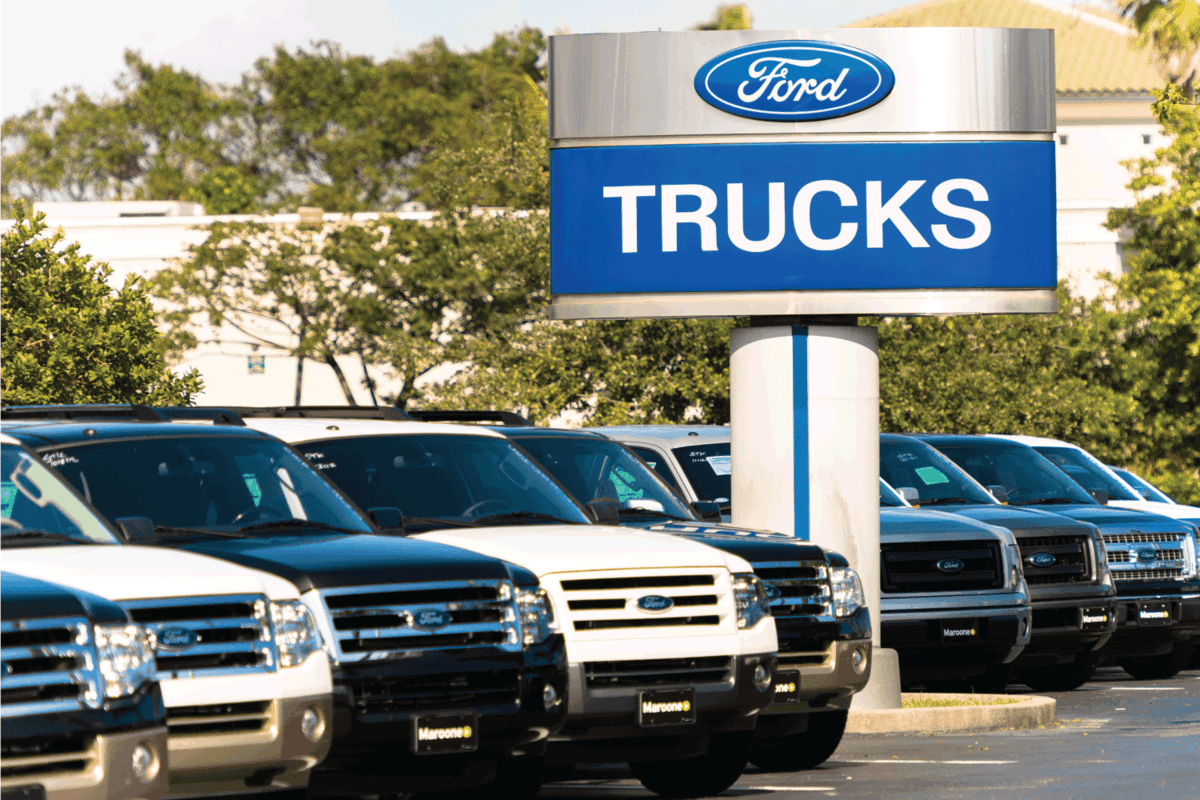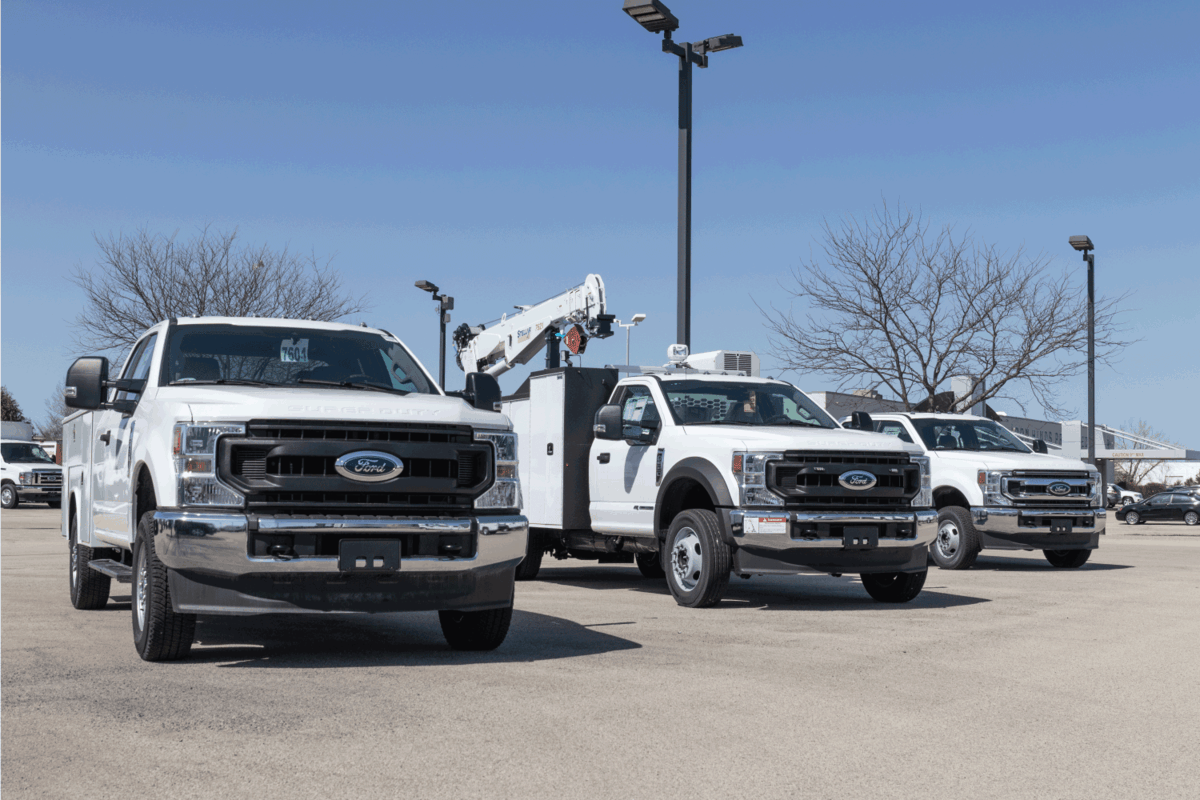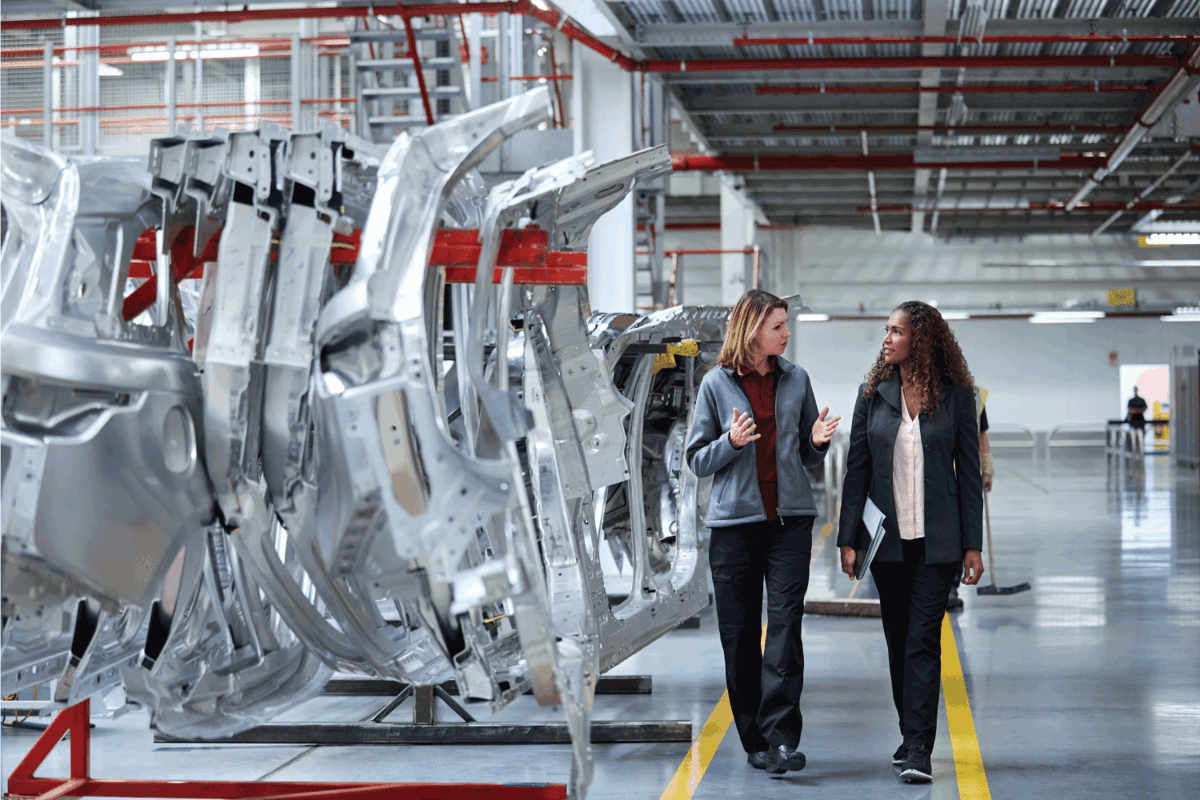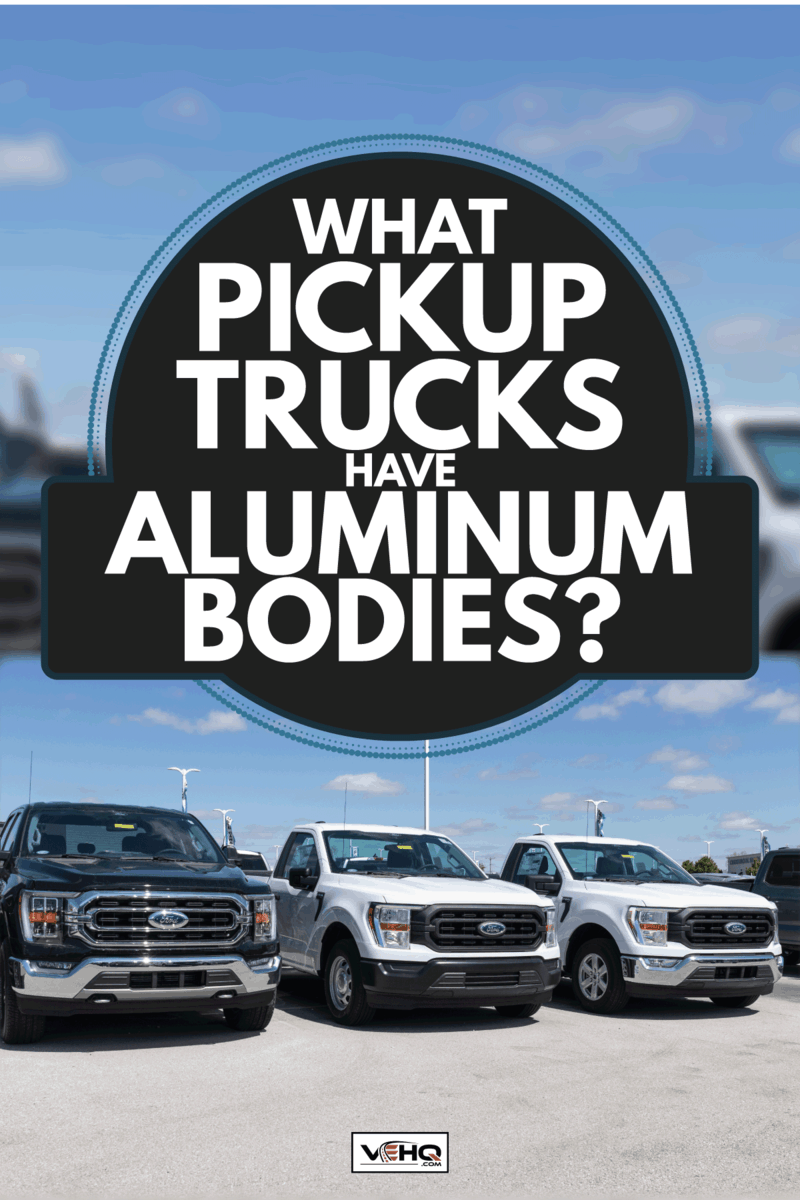As the automotive industry keeps developing, some pickup trucks have picked aluminum over steel for their vehicle frames. Certain pickup trucks have aluminum bodies instead of steel.
Swapping to aluminum aims for better fuel use and cleaner air while keeping - and in some ways boosting - tough working and driving traits.
Car companies use aluminum bodies to meet wants for less harm while not losing power and work needs for trucks. With new aluminum blends, makers try to lose weight and guard against rusting.
In the past, steel was the best material for truck frames due to its strength and staying power. But new making methods and material tech have made aluminum a fit and better choice.
This article looks at pickup trucks with aluminum bodies, pointing out the pluses they offer and why they attract car makers and buyers more.
Ford Pioneers Aluminum Body Trucks
Many recognize the advantages of aluminum bodies over steel, yet only a select few pickup models currently showcase extensive aluminum construction.
The leading truck brand in the US, Ford, pioneers this shift towards aluminum. Ford boasts three vehicles with significant aluminum construction within their celebrated F-Series line:
Ford F-150 Models
The legendary Ford F-150 continues to lead in full-size truck innovation with its lineup of models featuring aluminum bodies.
Be it the standard F-150, the sporty Raptor model, or the luxurious Limited variant, each model capitalizes on the lighter and more durable characteristics of aluminum.
F-Series Super Duty
The larger Super Duty trucks, encompassing the F-250, F-350, and F-450, also embrace aluminum construction from the hood to the tailgate. This design choice enhances resistance to minor damage while shedding weight compared to their steel-bodied counterparts.
Aluminum's Advantages
Although few manufacturers have ventured into extensive aluminum construction, the material offers distinct advantages over traditional steel body construction in the pickup segment.
Its corrosion resistance enhances durability, while its lighter weight bolsters fuel economy. Ford's early adoption of aluminum aims to establish a blueprint for truck designs that meld strength with efficiency.
Pickup Trucks That Have Aluminum Bodies
2023 Ford F-150
The Ford F-150 has been the best-selling truck in America since 1977! That's pretty impressive, considering how many great pickup trucks are out there.
The F-150 has a smooth ride, robust off-roading durability, and enough power to haul hefty loads. Ford's F-150 sports a lineup of trim packages that consumers can choose from, including XL, XLT, Lariat, King Ranch, Platinum, Limited, and Raptor.
Indeed, there are seven different trim packages offered for the F-150. No wonder the F-150 leads in sales year after year; it has so much to offer!
The F-150 offers seven trim packages and six different engine options. One notable option is the all-new 3.5L PowerBoost Full Hybrid engine.
For the 2023 models, Ford has added several new features. These include the 7.2-kilowatt Pro Power Onboard system, Ford BlueCruise hands-free highway driving technology, and a new Rattler off-road trim level.

2023 F-Series F-250 and F-350
The larger models, Ford-250 and Ford-350, share the aluminum body feature with the F-150, contributing to better fuel efficiency, particularly during heavy load towing.
Both models offer two engine options: a 7.3L Gas V8 or a 6.7L Powerstroke Turbo Diesel, catering to different power and efficiency needs.

Though similar in appearance, the Ford F-250 and F-350 have distinct capabilities. The key distinction lies in their respective payload and towing capacities, with the F-350 being designed for heavier duties.
For example, a 2023 Ford F-250 may have a payload capacity of up to 4,260 lbs, while the 2023 Ford F-350 may offer a payload capacity of up to 7,850 lbs, showcasing the higher payload capacity of the F-350 due to its design aimed at higher payload and towing capacities.
For precise payload and towing capacities, it's advisable to refer to Ford's official specifications or contact a Ford dealership for the most accurate and up-to-date information.
2023 F-450 Super Duty
The 2023 F-450 Super Duty stands out with its aluminum body construction, aligning with Ford's initiative for lighter and more fuel-efficient truck designs. Unlike the F-350, which is designed for both towing and daily commuting, the F-450 is engineered chiefly for hauling and towing purposes.
Navigating through city streets can be a challenge with the F-450 due to its large body; however, its towing capacity makes it an ideal choice for heavy-duty tasks.
When equipped with the available 6.7L High-Output Power Stroke® Turbo Diesel engine on the F-450 Crew Cab configuration with a Class III/14,000 lb. GVWR can tow up to 30,000 lbs conventionally.
Moreover, with the proper configuration and the Gooseneck Tow Package on the F-450 Regular Cab, it can tow an impressive 40,000 lbs using a gooseneck trailer.

The robust power of the F-450 is ideal for hauling large tractor equipment, cattle, or any substantially hefty load. A highlight feature of this model is its adaptive cruise control, which is extremely useful when towing large loads on interstates.
In situations where a quick slowdown is necessary, the adaptive cruise control will automatically reduce the truck's speed while maintaining the cruise control setting, reverting back to the original cruise control speed once it's safe to do so.
To accommodate its height, the F-450 offers owners deployable cab steps and a tailgate step, aiding in easier access to the cab and bed. Continue reading to explore more benefits of aluminum body trucks.
Ford's Switch From Steel To Aluminum
Ford switched to aluminum to better serve customers and gain a competitive edge in the truck market.
Addressing the general concern of poor gas mileage in pickup trucks, Ford saw an opportunity to enhance fuel efficiency and maintain rugged durability by switching to a complete aluminum body.
We emphasize "complete," as unlike the Chevy Silverado, which only switched some panels to aluminum, Ford transitioned the entire body of their trucks to aluminum, including the truck bed.

Continue reading to learn about the features and benefits of the Ford F-150 and F-Series Super Duty aluminum bodies.
Payload Capacity of Ford's Aluminum Trucks
A vital factor for comparing pickup trucks is payload capacity—the peak weight a truck bed can safely carry. Higher payload capacity boosts functionality, aiding in hauling and transporting more loads.
Ford's aluminum structure plays a big part in its trucks' payload capacities. For instance, the Ford F-150's payload capacity varies with its trim, ranging from 1,765 lbs in the base F-150 XL to 3,325 lbs in the premium F-150 Limited trim, as per 2021 data.
The bigger models, the Ford F-250 and F-350 are also impressive. Though specific trim-level data for 2023 isn't available, the Ford Super Duty lineup, which includes the F-250 and F-350, has been noted to offer a maximum payload capacity of up to 8,000 lbs.
Transitioning from traditional steel to aluminum bodies has notably upped the payload capacities, providing a significant edge over earlier models.
Towing Capacities of Ford's Lineup
Towing capacity is another key metric when picking the right pickup. The F-150's towing range is broad, stretching from 5,000 to 14,000 lbs, catering to lightweight daily towing needs depending on the configuration.
The F-250 further elevates towing prowess, with capabilities reaching up to 23,000 lbs. On the other hand, the F-350 pushes the limit, boasting an impressive 37,000 lbs of fifth-wheel towing capacity when aptly equipped.
For extreme heavy-duty towing, the F-450 is unmatched with a robust fifth-wheel towing capacity, though exact figures may slightly vary from the mentioned 35,750 lbs, aiming closer to 37,000 lbs based on some sources.
The aluminum body's reduced weight enhances these trucks' towing capacities. It directs the engine's power and drivetrain's torque towards hauling instead of moving the truck's mass, resulting in a notable performance advantage.
What year did Ford trucks debut aluminum bodies?
Switching from steel to aluminum was a big step for Ford. It came with concerns like losing loyal customers who trusted the steel-bodied trucks.
Despite worries, Ford made the change in 2015. They introduced the F-150 with an aluminum body, aiming to improve performance and efficiency in the truck market.
The success of this change wasn't just with the F-150. In 2017, Ford also used aluminum bodies in its F-Series Super Duty lineup, aiming for lightweight and strong truck designs.
The tradition of celebrating steel-bodied trucks for their durability and strength was hard to change.
However, people soon saw the benefits of the aluminum body. The better fuel efficiency and strong durability made Ford's aluminum-bodied trucks as popular as the old steel-bodied ones.
Advantages of Aluminum vs. Steel
A major advantage of aluminum over steel is its markedly lighter weight.
This weight reduction is notable; for instance, Ford underlines that the shift to an aluminum body in the F-150 resulted in a 700 lb reduction in weight compared to its previous steel body iteration.
This weight reduction is a big advantage, especially since fuel efficiency is a common concern for trucks.
Ford's shift to aluminum bodies greatly improved fuel efficiency, with some data showing up to a 29% increase. This change can save a lot of fuel costs over time.
The F-150's lighter body didn't just improve fuel efficiency; it also boosted the truck's overall performance. A lighter body means less engine strain. This is very helpful for hauling and towing, allowing the engine to use more power for these tough tasks.
Do Aluminum Body Trucks Resist Rust?
A common concern with pickup trucks is rust, which can damage the body and undermine structural integrity over time.
Aluminum is highly resistant to corrosion and rust compared to steel. Its anti-corrosive properties give it an advantage for truck bodies and beds, allowing it to withstand the elements and road conditions better.
Aluminum alloys have a surface reaction that forms a protective layer to prevent rust.
While no material is fully rust-proof, aluminum resists rust much better than steel, especially when exposed to weather, road salt, and other environmental factors.
This gives added peace of mind to truck owners concerned about maintaining their vehicles' condition.
Aluminum: A Strong Competitor
The F-150's aluminum body dispels the myth of fragility often associated with aluminum, showcasing strength and durability suitable for daily use.
While aluminum may not outperform steel in sheer strength, the design of the F-150 leverages aluminum's properties for effective energy absorption during impacts.
The debut of aluminum bodies spurred discussions, with skeptics questioning their resilience compared to traditional steel bodies.
Critics, often from competing brands, argue that despite the fuel efficiency and engine performance gains afforded by the lighter body, the aluminum body may falter under extreme force.
Watch this crash test video to see how the aluminum-bodied F-150 stands its ground compared to a steel-bodied car, demonstrating the performance of aluminum in real-world crash scenarios:
Aluminum or Steel: Navigating the Truck Body Material Debate
The choice between aluminum and steel for truck bodies often revolves around three factors: density, strength, and fuel efficiency.
Steel's hallmark is its substantial density, which, although makes it heavier, also typically renders it stronger. This perceived strength has often painted steel-bodied trucks as more enduring contenders over time.
Conversely, aluminum's lightness directly contributes to better fuel efficiency—a plus for budget-minded truck enthusiasts.
However, longevity isn't determined by density alone. Other factors, like corrosion resistance, also play a part. Aluminum naturally wards off corrosion, a trait that lends it a hand in longevity, particularly under the wrath of harsh weather elements.
Steel, though susceptible to rust, isn’t left in the lurch—it can be treated or alloyed, like the stalwart stainless steel, to better its stand against corrosion.
The choice between steel and aluminum truck bodies transcends a black-and-white decision, entering the realm of personal or operational inclinations.
A case in point is the Chevrolet Silverado, which strikes a balance. It melds aluminum panels to shed some weight while clasping onto a steel truck bed for the requisite strength, especially where it counts the most.
This judicious blend of high-strength steel in the Chevrolet Silverado exemplifies a nuanced strategy, tapping into the virtues of both materials. It balances durability and efficiency, showing careful material management in truck design.
So, Who's The Clear Winner?
When it comes down to choosing between a truck with an aluminum body or a steel body, you will need to weigh the pros and cons based on your own opinion.
Some may find aluminum less strong than steel, while others may disagree. The choice involves more than just the material used. Consider comfort, drivability, fuel mileage, towing capabilities, luxury features, and price.
You might love the engineering of the aluminum body on a Ford F-150 during a test drive but dislike its ride on the interstate.
Test-drive some trucks and narrow your choices down to your top three favorites. From there, make a list of pros and cons to help you make a buying decision. Good luck!
If you enjoyed this article on trucks that have aluminum bodies, you might also like:
What's the F-150 Payload Capacity? [Various Models]
What's the Chevy Silverado's Gas Mileage (MPG)
If you have any questions about the article, please leave us a comment below:
Use this image to add this article to your Pinterest board:

